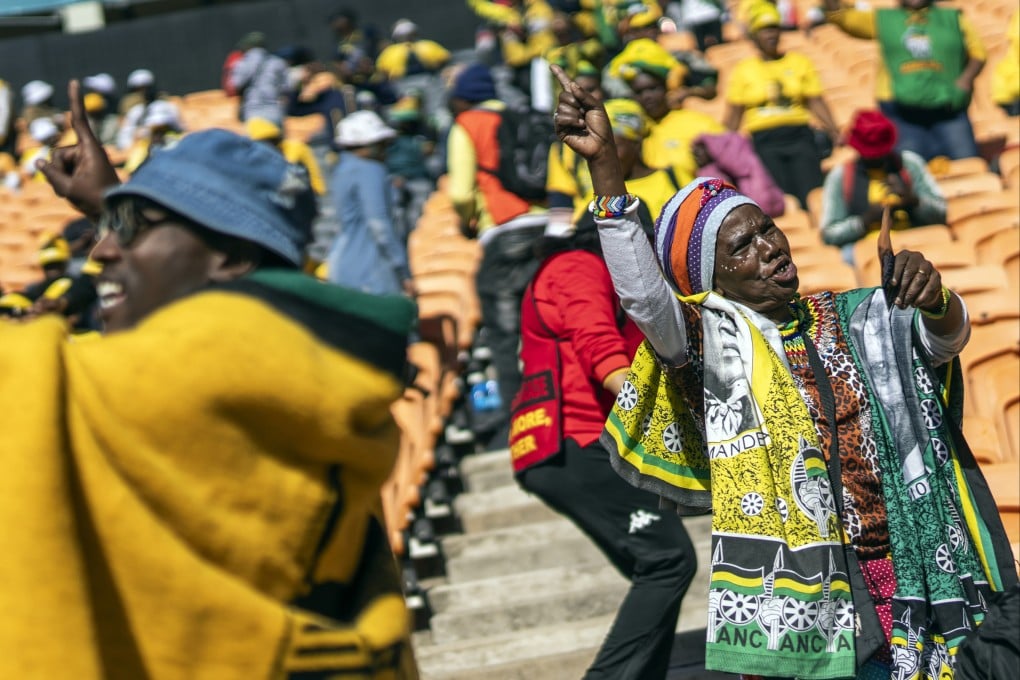South Africa election ends 3 decades of ANC dominance
- With support dropping to 40 per cent of the vote, the legacy party of Nelson Mandela must for the first time share power in a coalition deal
- The ANC’s popularity has dwindled over the past decade as the economy stagnated, unemployment rose and roads and power stations crumbled

South Africans angry at joblessness, inequality and power shortages have slashed support for the African National Congress (ANC) to 40 per cent in this week’s election, ending three decades of dominance by the party that freed the country from apartheid.
A dramatically weakened mandate for the legacy party of Nelson Mandela, down from the 57.5 per cent it got in the previous 2019 parliamentary election, means the ANC must share power with a rival to keep it – an unprecedented prospect.
“We can talk to everybody and anybody,” Gwede Mantashe, the ANC chair and current mines and energy minister, told reporters in comments carried by the South African Broadcasting Corporation (SABC), dodging a question about who the party was discussing a possible coalition deal with.
Vote tallying from Wednesday’s poll was entering its final stages on Saturday, with results from 99.53 per cent of polling stations giving the ANC 40.21 per cent.
The main opposition party, the Democratic Alliance (DA), had 21.80 per cent, uMkhonto we Sizwe (MK), a new party led by former president Jacob Zuma, managed to grab 14.60 per cent, while the far-left Economic Freedom Fighters (EFF), led by former ANC youth leader Julius Malema, got 9.48 per cent.

“We have achieved our mission … to bring the ANC below 50 per cent. We want to humble the ANC,” Malema told journalists at the results centre.
